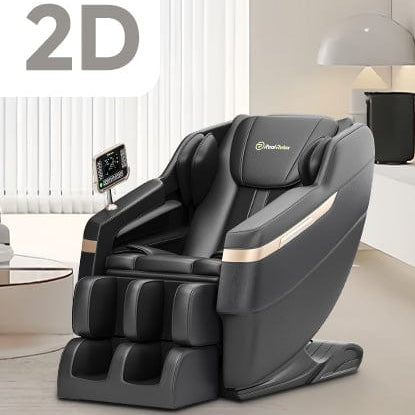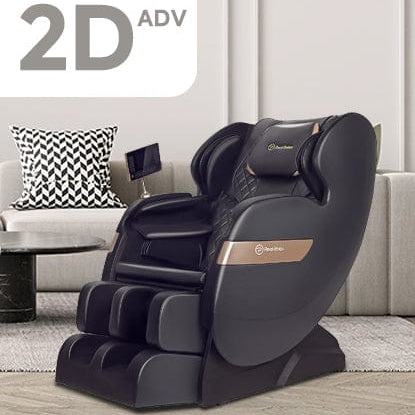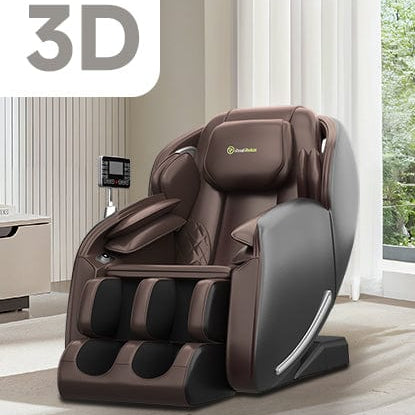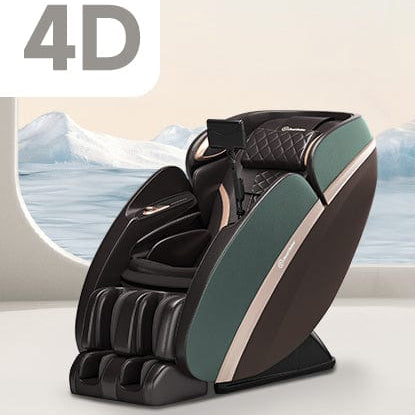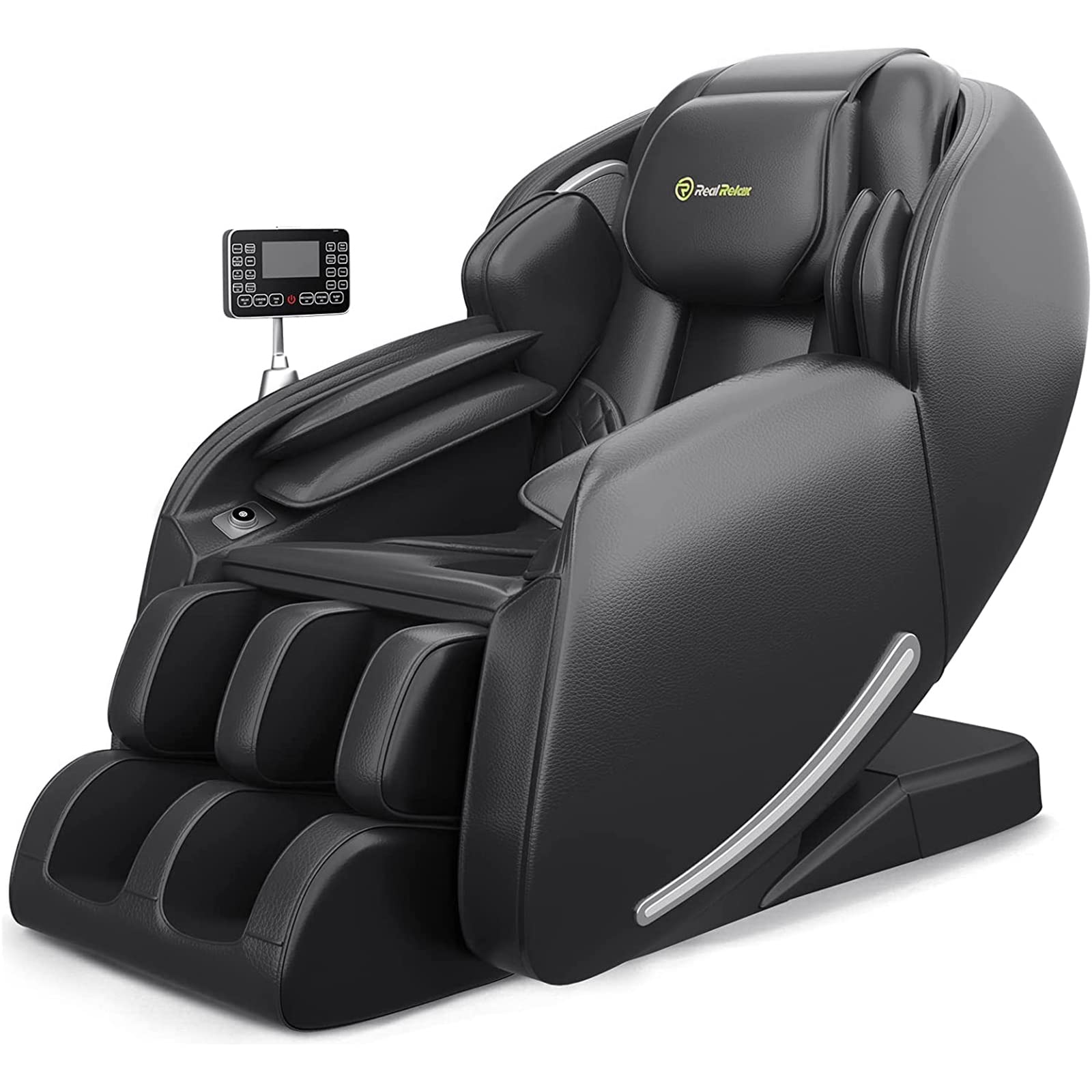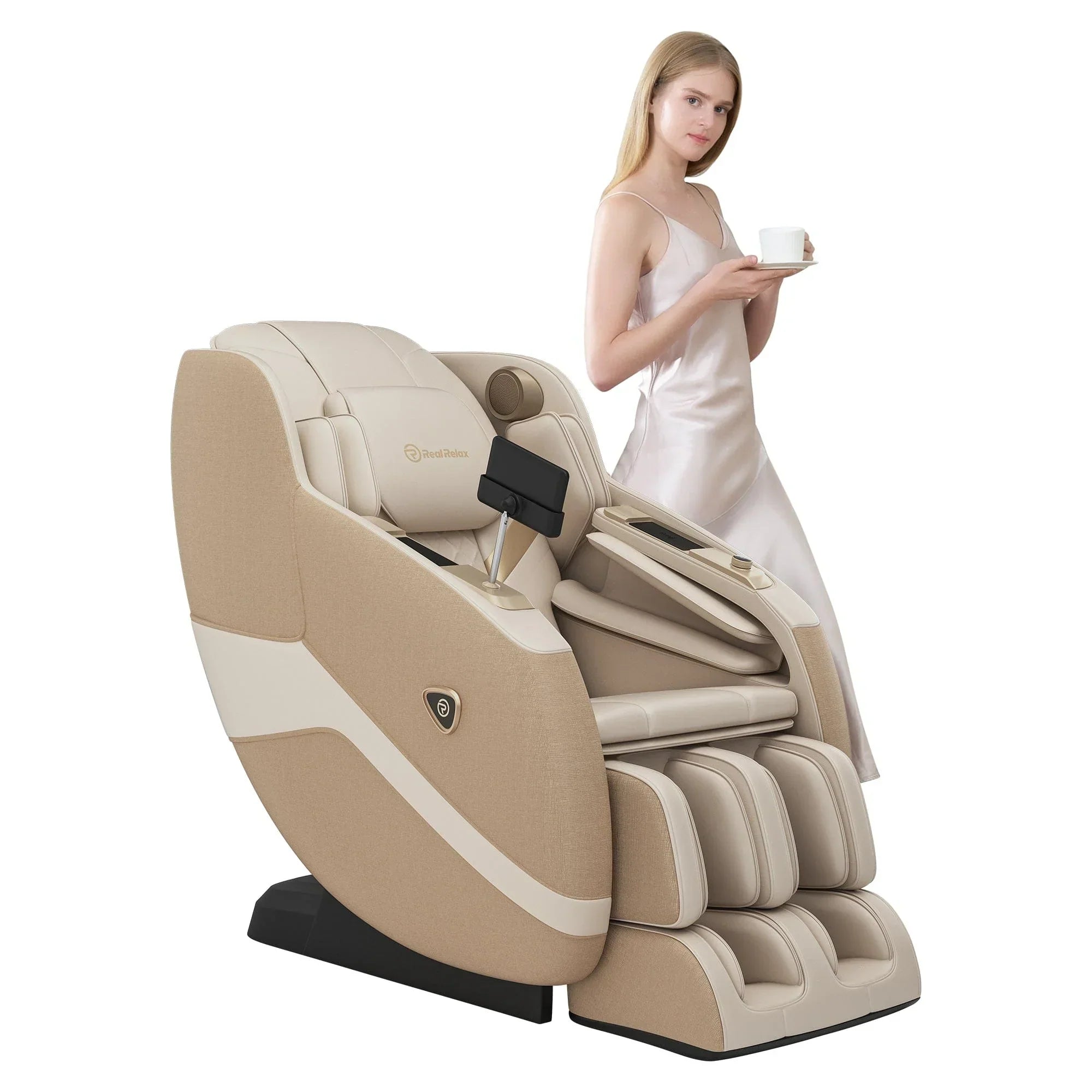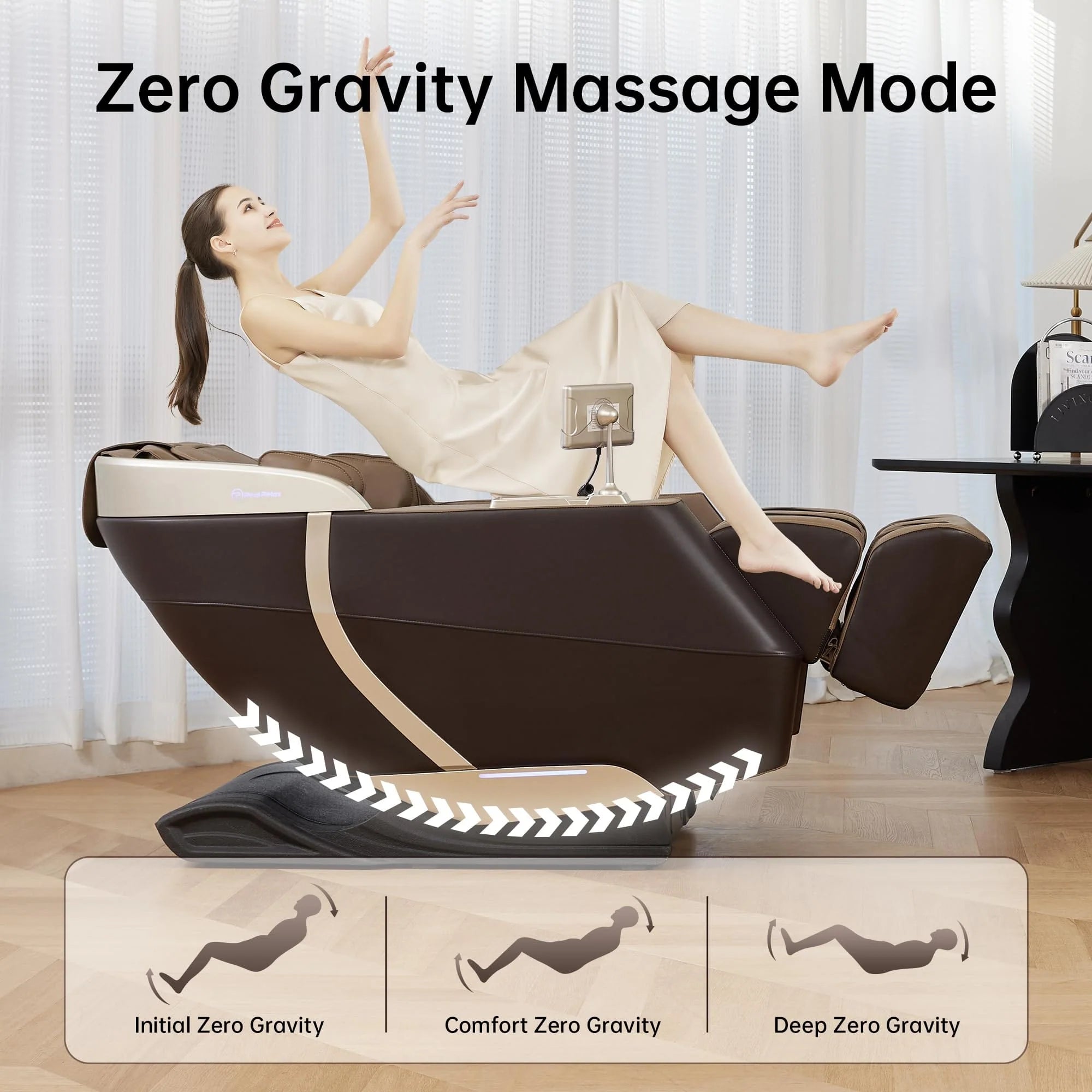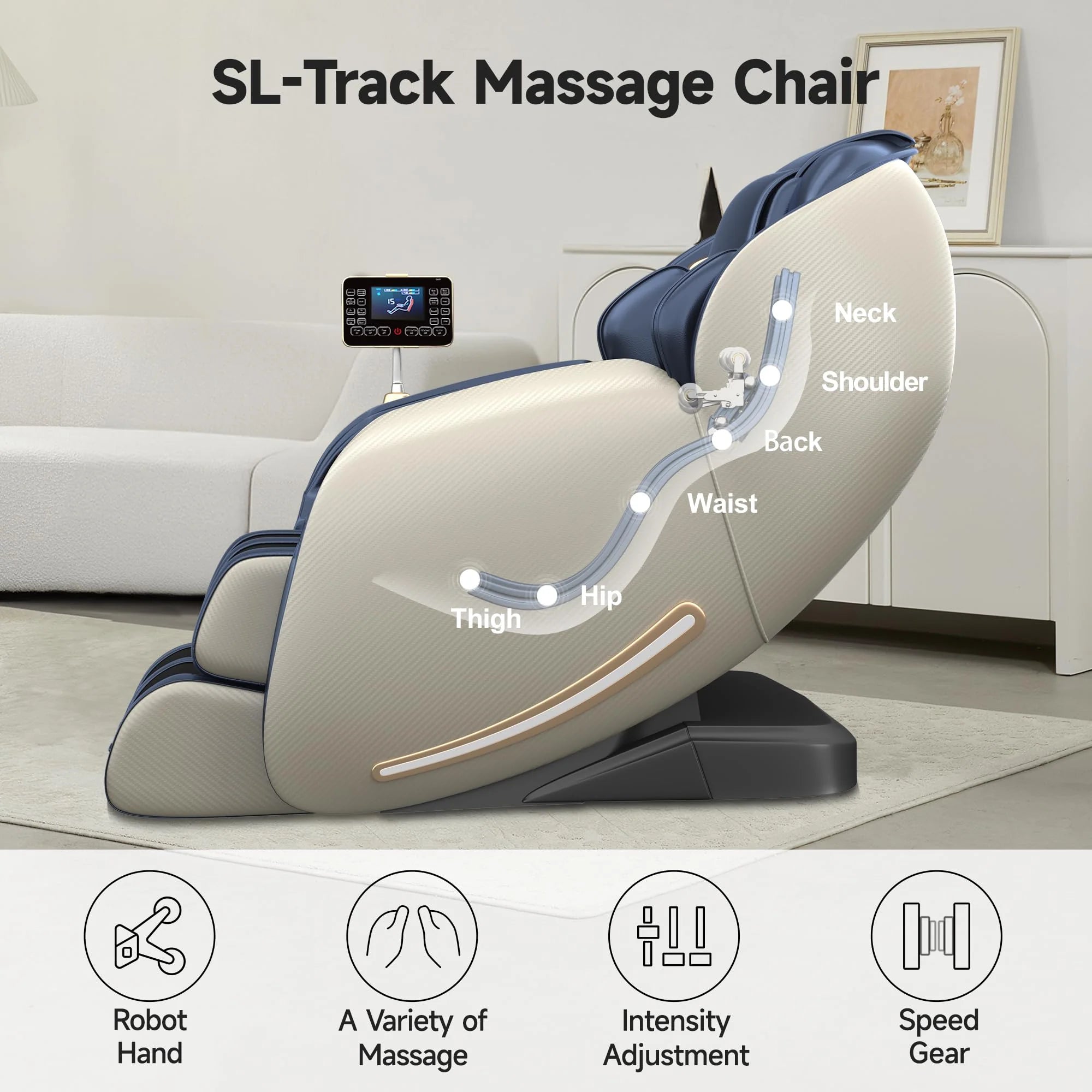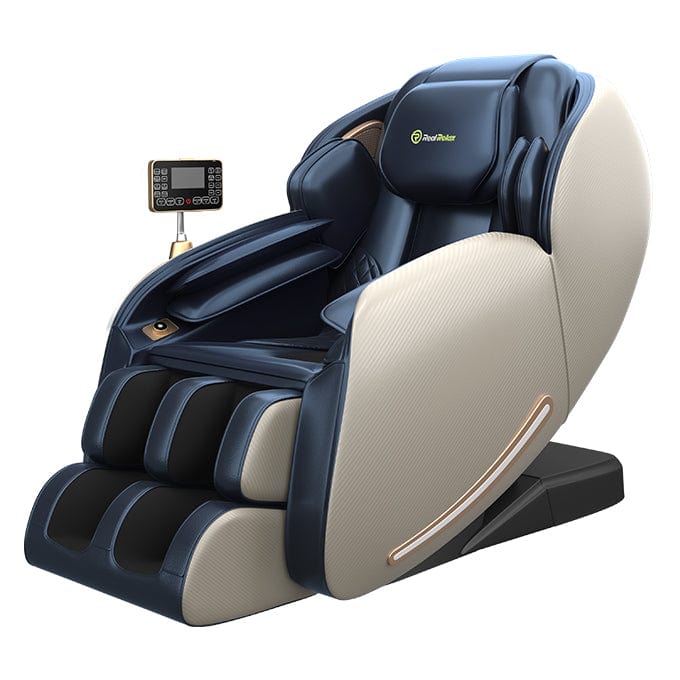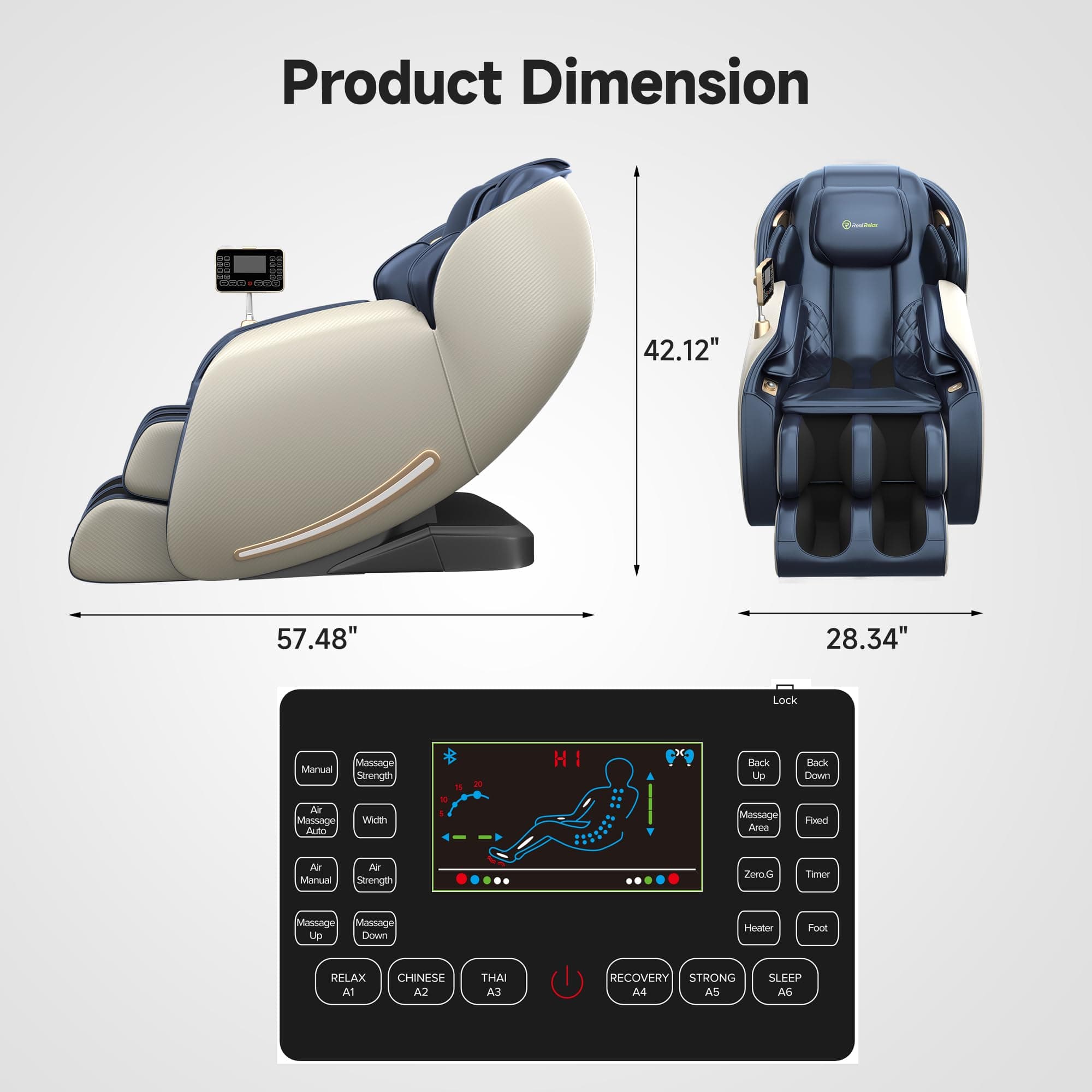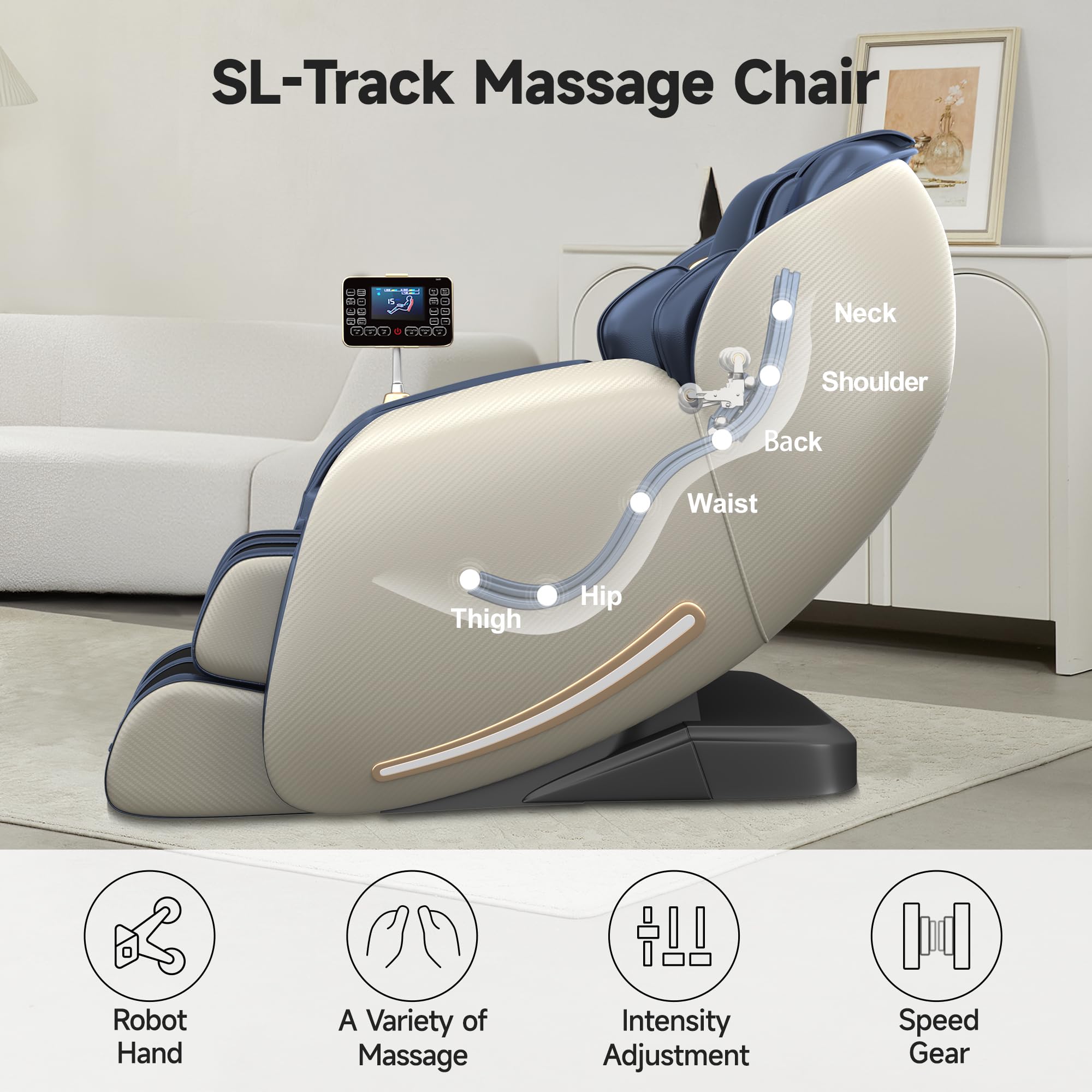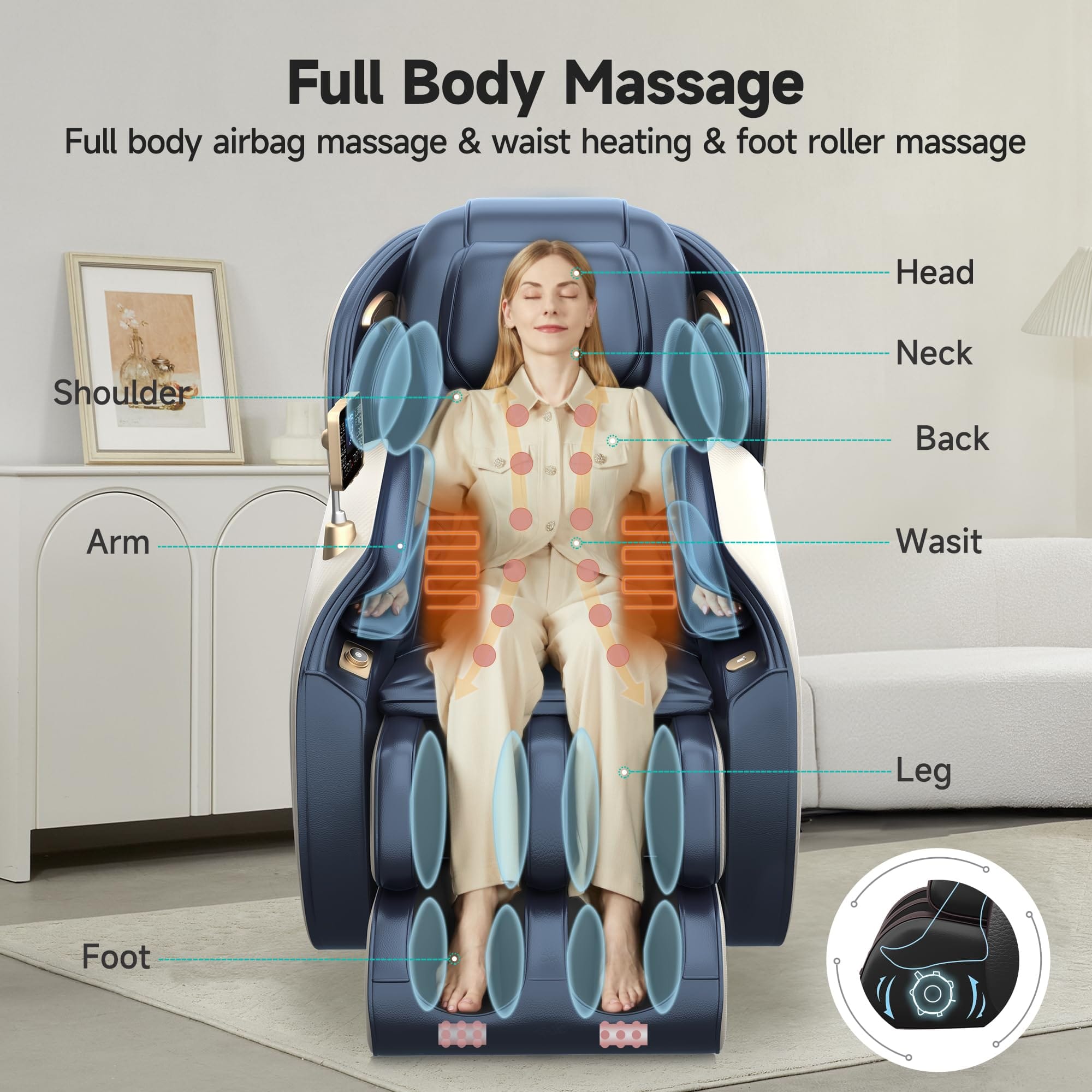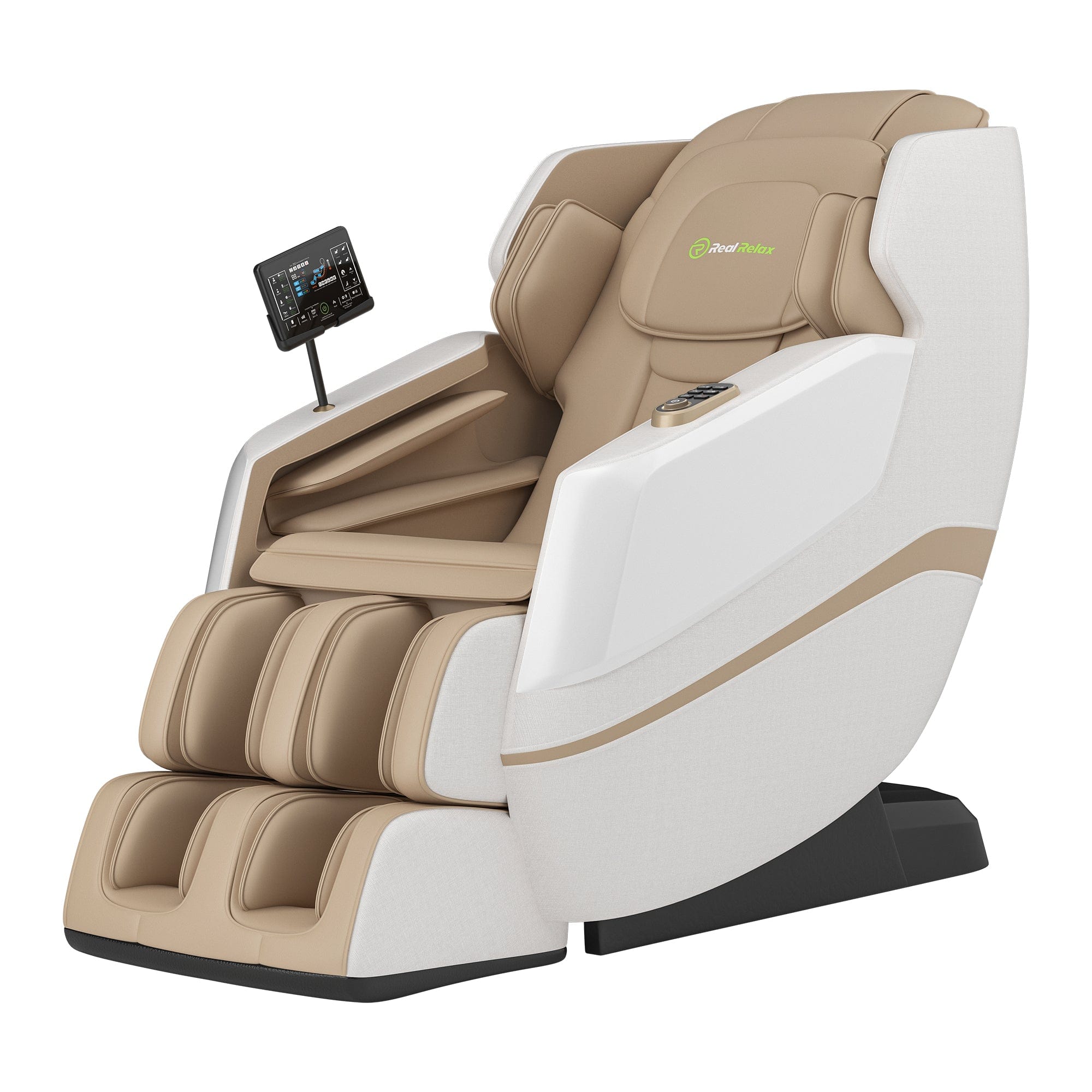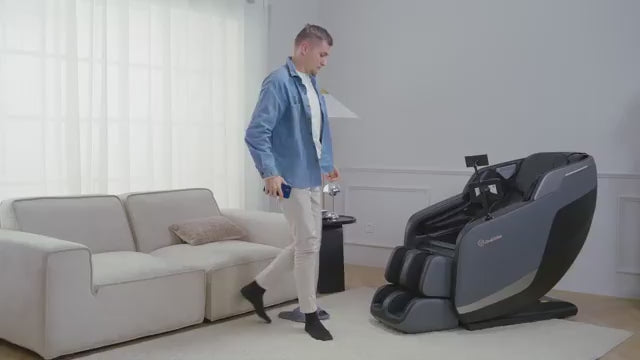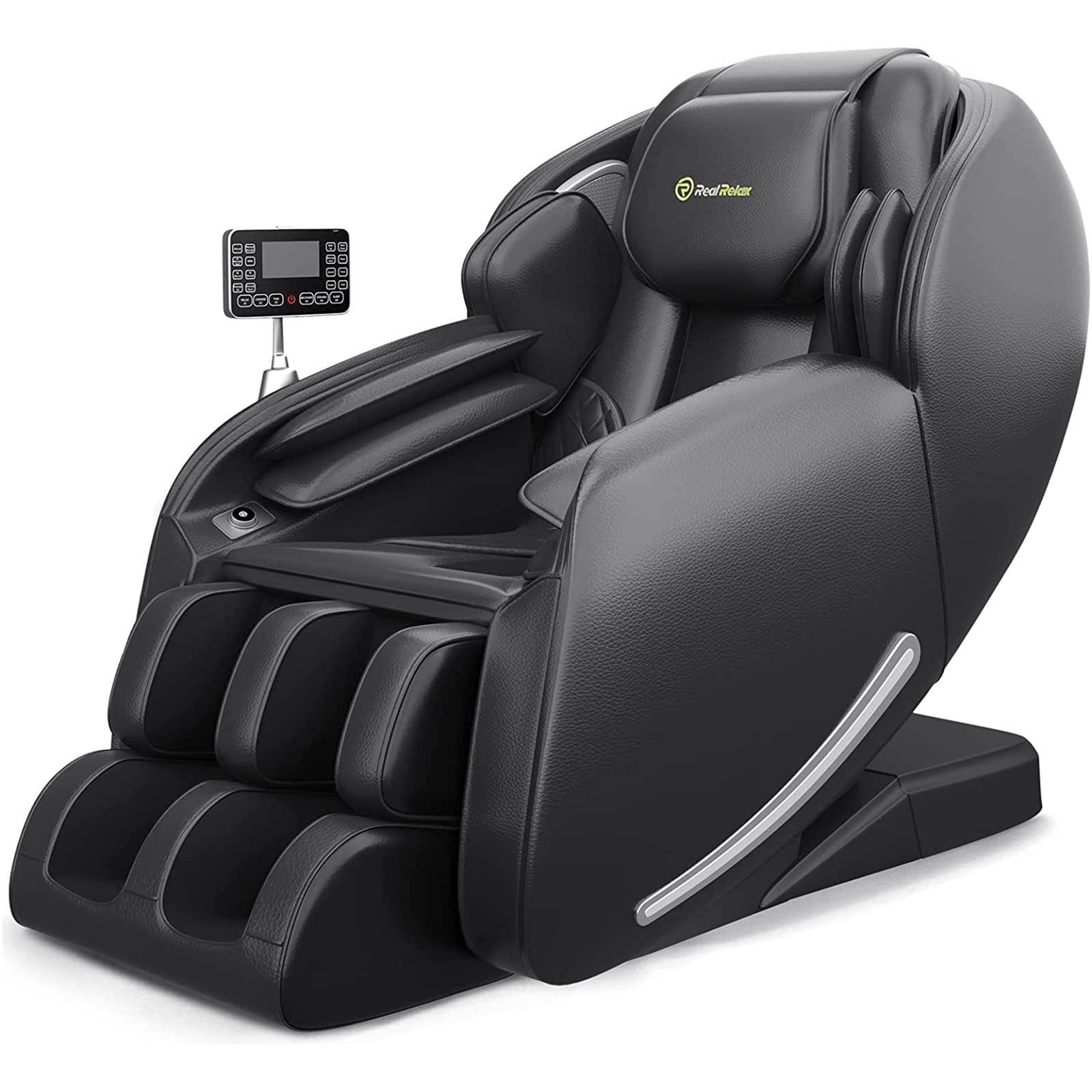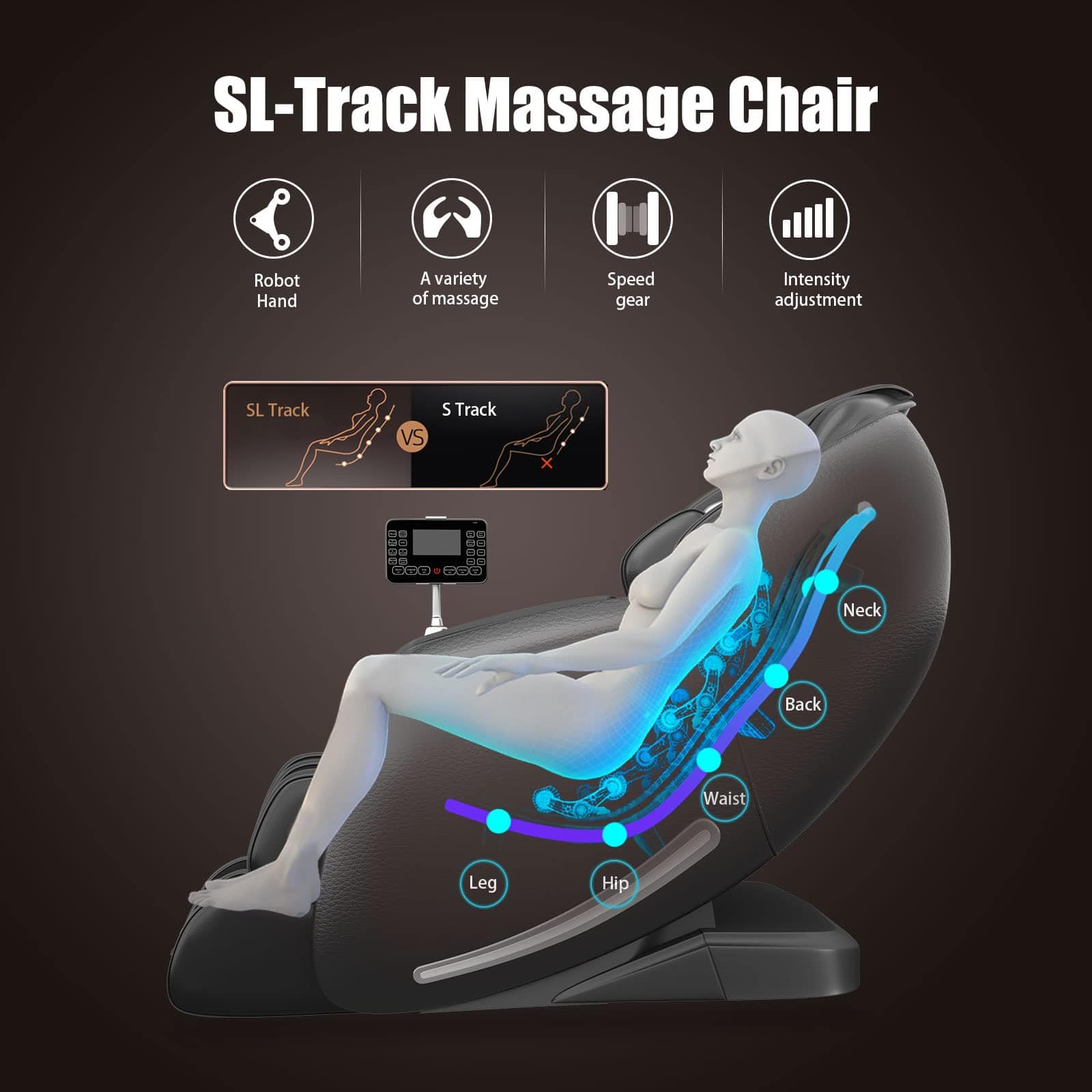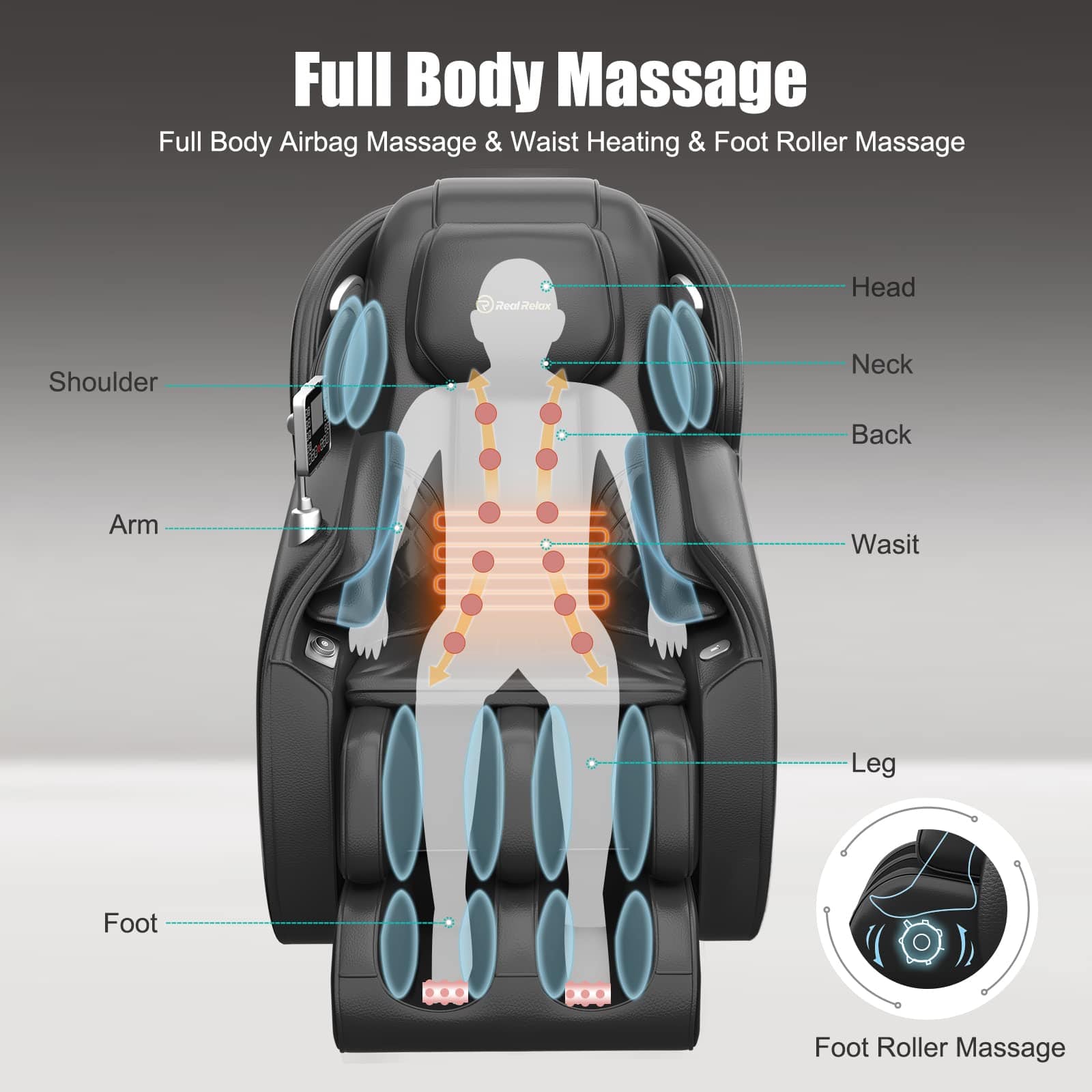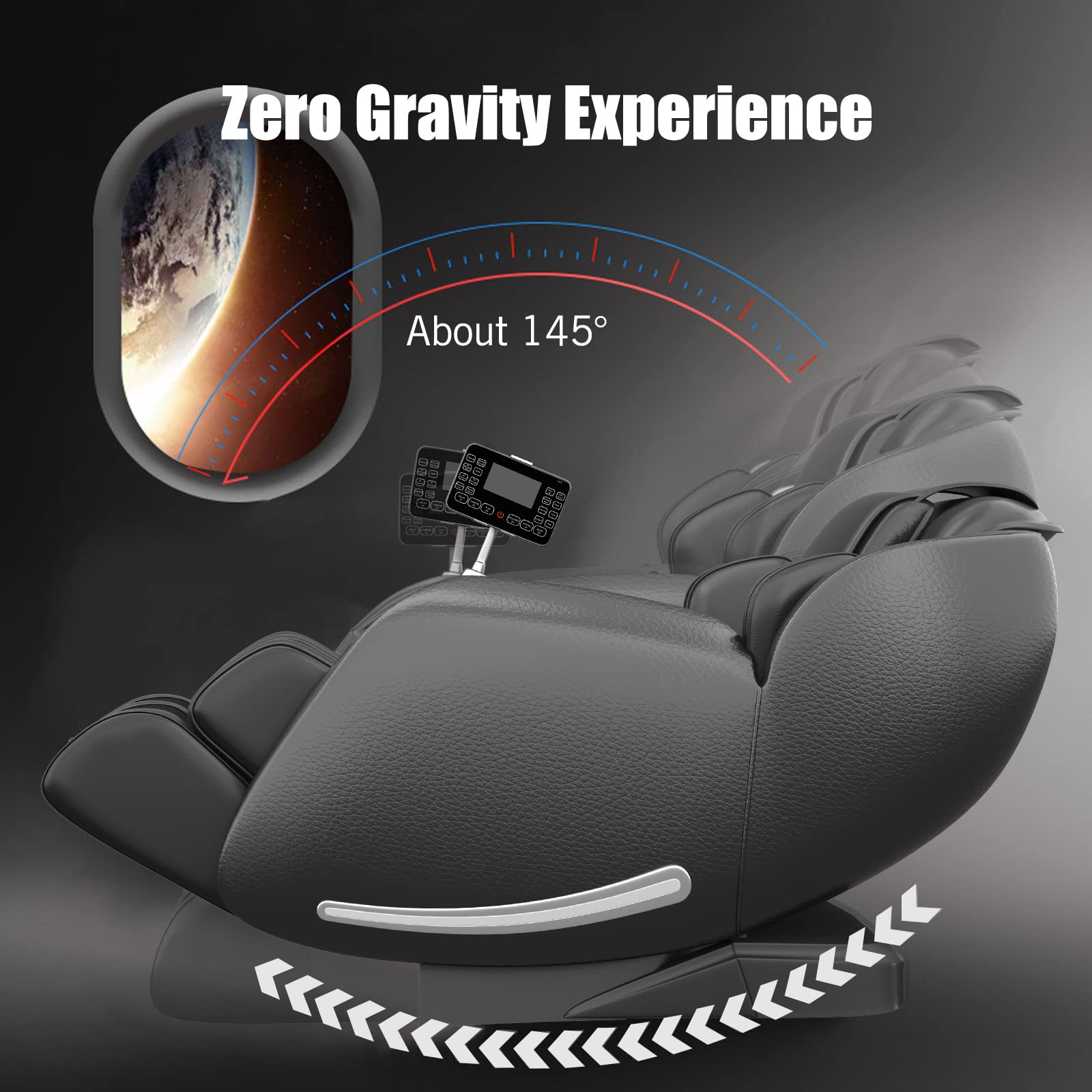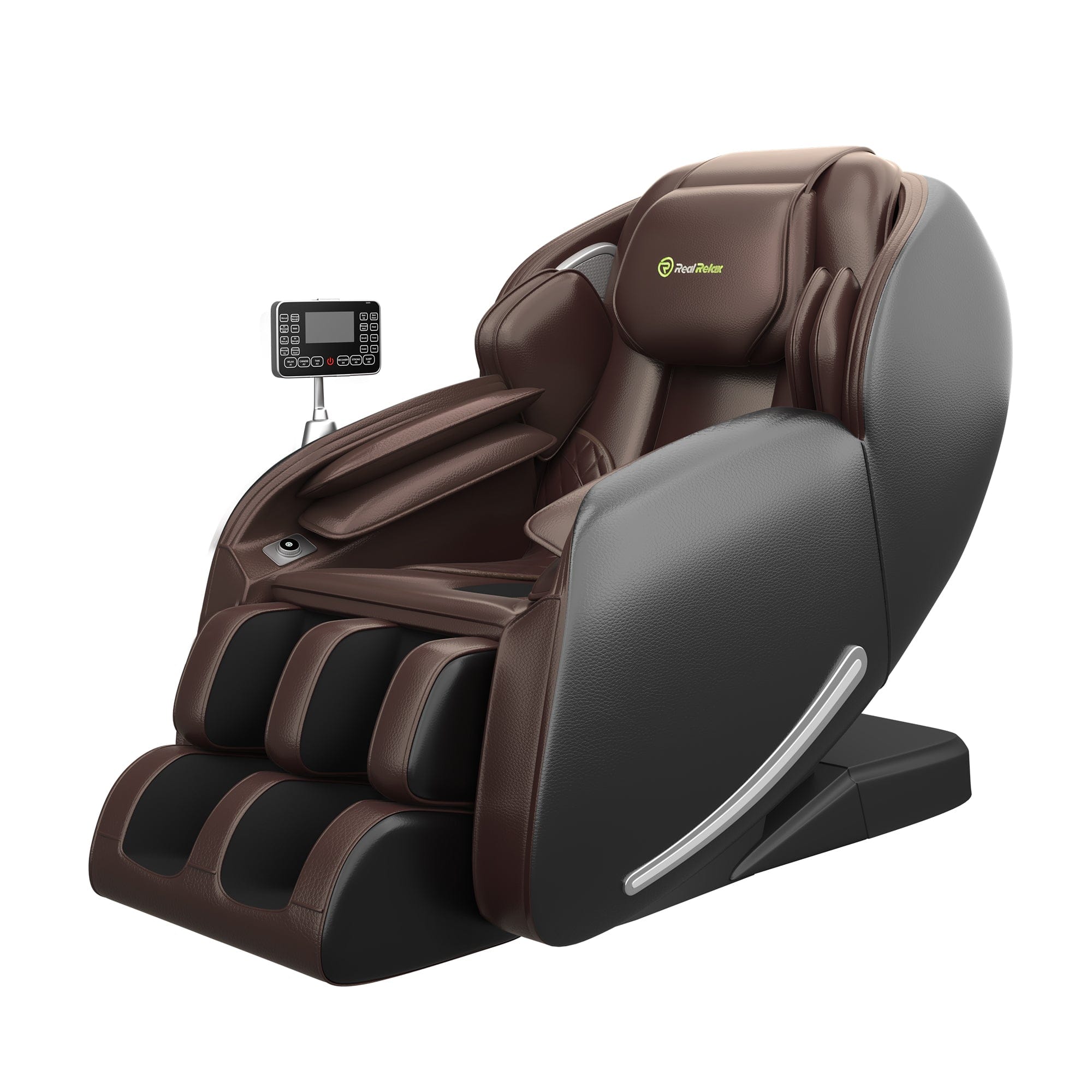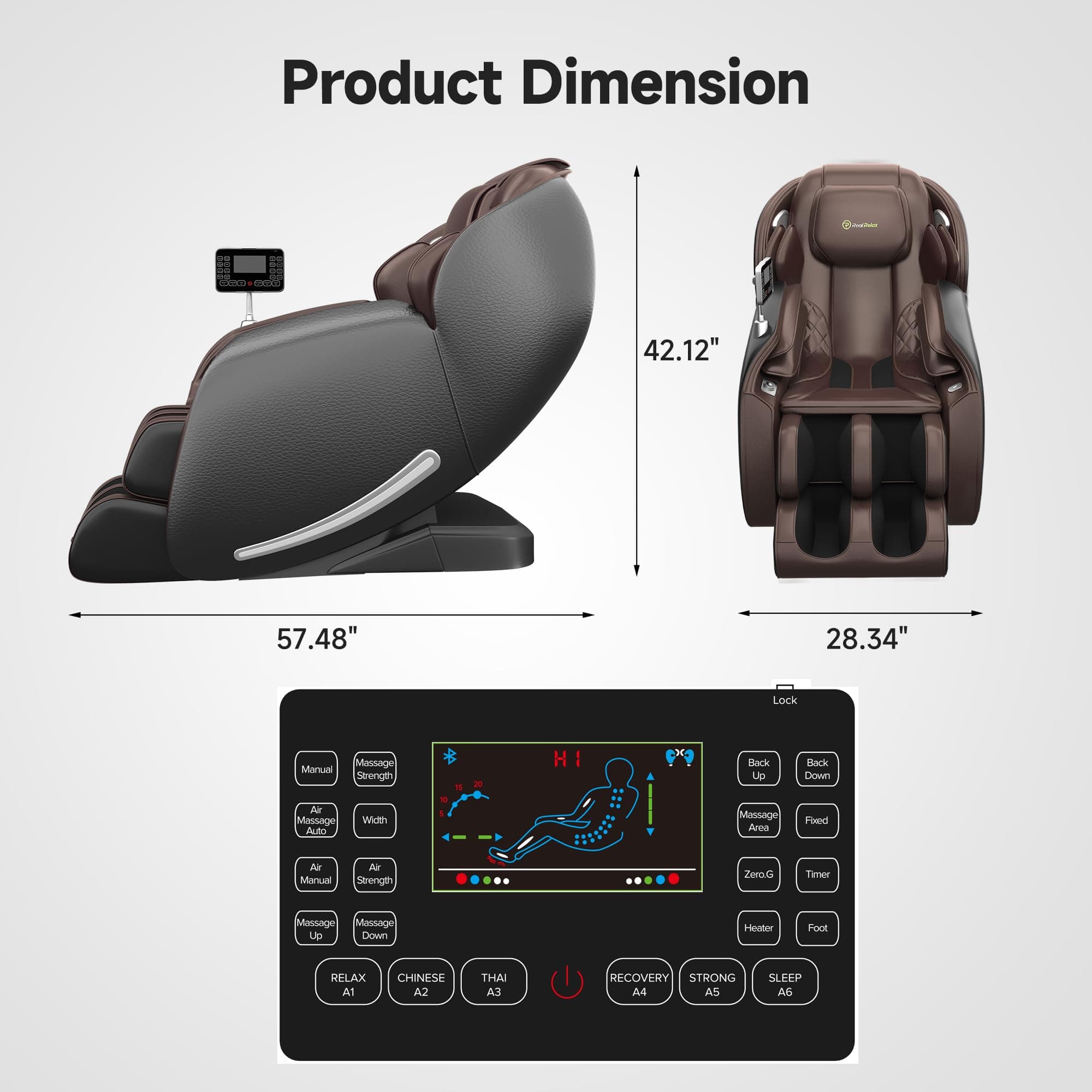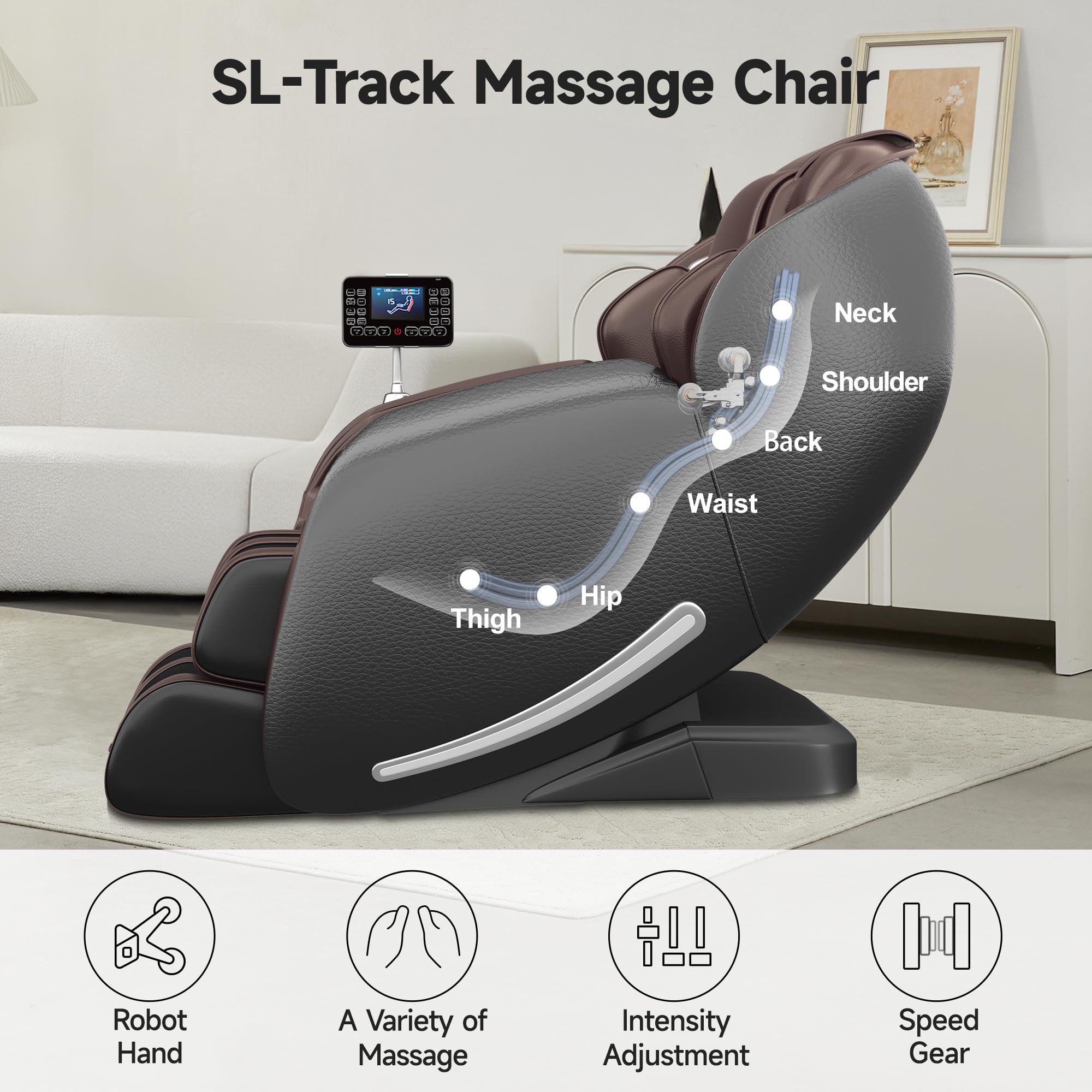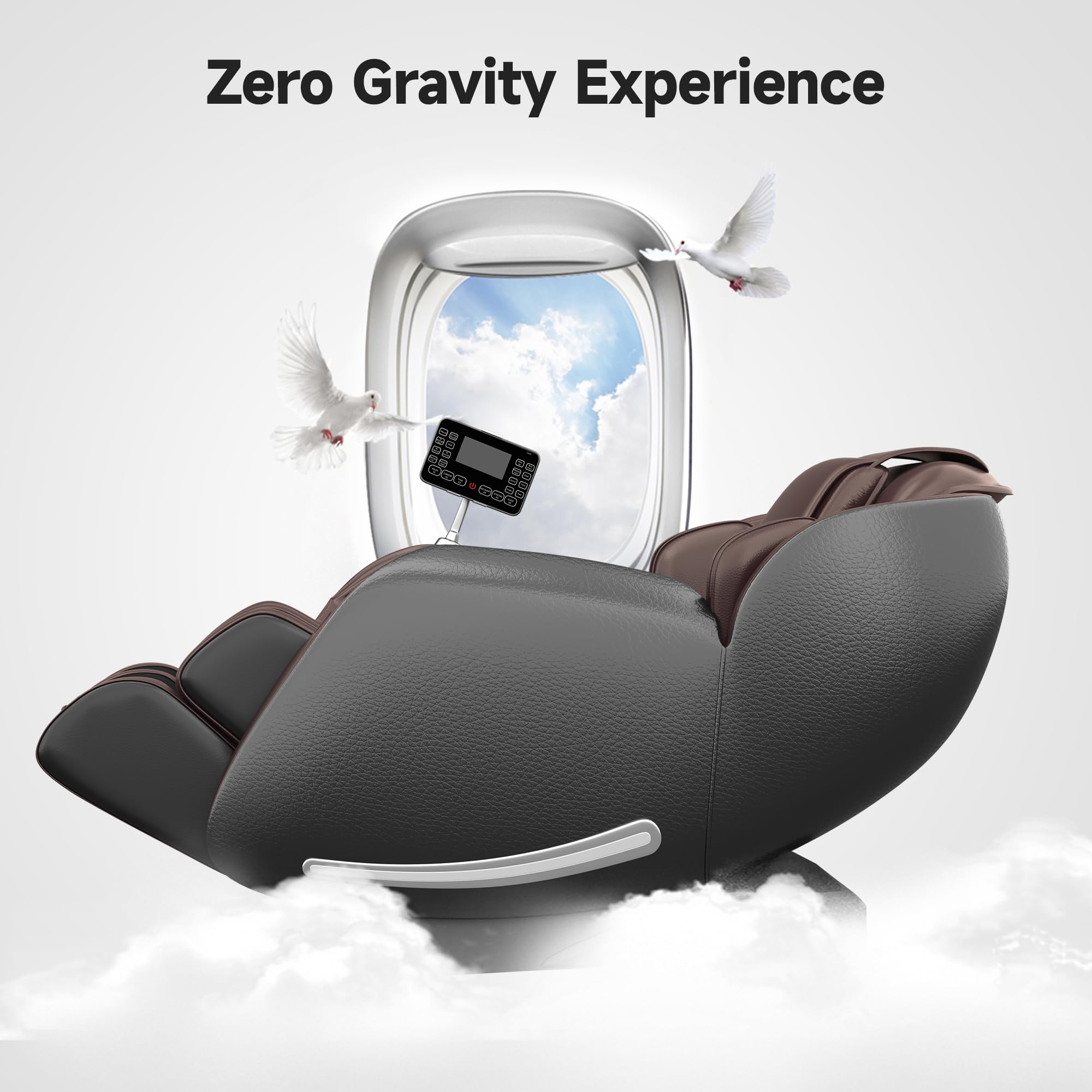Massage chair recliners provide relaxation, reduce stress, alleviate muscle pain, improve blood circulation, offer convenience, save costs over time, allow for personalization, help with posture, aid in recovery, increase accessibility, and promote better sleep.
However, reclining massage chairs might not be suitable for below persons (Real Relax recommends those with any of the following conditions consult your physician first before using the massage chair.):
1. Patients with serious hyperostosis
For patients with osteoporosis, using a premium massage chair poses certain risks. It is recommended to engage in appropriate physical activities and treatments under the guidance of a doctor, avoiding the use of massage chairs that may exacerbate the condition.

Fragile Bones
The main characteristic of osteoporosis is the reduction of bone mass and the decrease in bone strength, making the bones brittle and prone to fractures. If the massage chair's force is not controlled properly, especially in the case of osteoporosis, it is particularly easy to cause fractures.
Difficult to Control Massage Force
The force of the leather massage recliner chair is not easy to control. If the force is too small, it has little effect; if it's too strong, it can cause muscle pain. For patients with osteoporosis, excessive force may lead to fractures.
Increased Risk of Fractures
Due to the brittleness of bones in osteoporosis patients, if the intensity of the massage chair is too high, especially during massages of the waist and ribs, it is very likely to cause fractures.
Decreased Physiological Function in the Elderly
The elderly, due to decreased physiological function and slowed metabolism, are at a higher risk of osteoporosis. Using a massage chair may increase the risk of osteoporosis.
Worsening of Condition
Older individuals who already have osteoporosis or multiple underlying diseases may see their condition worsen after being pressed by a massage chair, leading to fractures, joint dislocation, and other phenomena.
2. Patients with swollen lump and thrombosis
Patients with swollen masses and blood clots should not use massage chairs for the following main reasons:

Risk of Clot Detachment
For those with known or unknown blood clots or other vascular diseases, the pressure from a massage chair, if too strong, could cause the clot to detach. A detached clot can block blood vessels, leading to subsequent health issues. If the clot is located in the deep veins of the lower limbs, it could lead to a more severe risk of pulmonary embolism.
Exacerbation of Swelling and Pain
People with swelling and pain, especially in the lower limbs, are advised against indiscriminate massage. Many people are unaware they have blood clots and attribute swelling and pain to fatigue or poor blood circulation. Problems often arise after massage when the condition is discovered. Blind massage can worsen the condition.
Vascular Damage
Individuals with varicose veins are also advised against foot baths and massages, as the squeezing during massage could damage the inner walls of blood vessels, leading to clot formation. This is manifested by pain, redness, and swelling in both legs, making it difficult to walk.
Nerve Damage
Improper mechanical massage can also cause damage to superficial nerve tissues.
Therefore, for patients with swollen masses and blood clots, using a massage chair poses certain health risks.
3. Patients with serious heart conditions
People with heart disease are not suitable for using massage chairs for the following reasons:

Increased Cardiac Load
Massage chairs stimulate the body through mechanical means, which may increase the burden on the heart. For those with weak cardiac function, this could lead to an increased heart rate and elevated blood pressure.
Risk of Serious Cardiovascular Events
The acceleration of blood circulation due to the use of massage chairs may trigger severe cardiovascular events such as angina and myocardial infarction in patients with heart disease.
Risk of Arrhythmia
Patients with heart disease may experience symptoms like arrhythmia, and the stimulation from massage chairs could exacerbate these symptoms.
Risk of Blood Pressure Fluctuations
The vibrations and noise generated during the use of massage chairs might have a negative impact on patients with heart disease, leading to fluctuations in blood pressure and arrhythmias.
Risk from External Stimulation
Patients with heart disease might be startled by the sudden pressure from massage chairs, which could pose risks to the cardiovascular and cerebrovascular systems.
4. Women who are pregnant
Pregnant individuals are advised against using massage chairs for several reasons, including:

Pressure on the Abdomen
Massage chairs can apply pressure to the abdomen, which is risky during pregnancy as it may lead to placental or uterine rupture, potentially causing pregnancy loss or even maternal death.
Vena Cava Syndrome
Lying flat on the back during pregnancy, especially in the third trimester, can slow blood flow through the inferior vena cava, a condition known as vena cava syndrome. To avoid this, massages should be performed in a lateral position, and sitting positions are also possible.
Risk of Premature Labor
Some experts worry that strong vibrations from a massage chair could affect the baby, especially in the first trimester when development is delicate, potentially causing premature labor.
Deep Vein Thrombosis (DVT)
Pregnant women are at a higher risk of developing DVT, and deep tissue massages, which a massage chair might provide, can dislodge a clot and lead to a pulmonary embolism.
Sensitivity and Body Changes
Pregnancy changes how the body reacts to pressure and vibrations. The skin may be more sensitive, and joints and ligaments are looser, which could make the experience of using a massage chair uncomfortable or harmful.
Medical Conditions
If a pregnant person has any medical conditions such as high blood pressure, preeclampsia, or a history of preterm labor, they should probably avoid massage chairs as the risks might outweigh the benefits.
5. People that consume large amounts of alcohol
People who have consumed a large amount of alcohol are not suitable for using massage chairs for the following reasons:

Increased Risk of Accidents or Injuries
Using a massage chair after drinking can increase the risk of accidents or injuries due to impaired judgment and reaction capabilities.
Impact on Health
After drinking, the body is busy metabolizing alcohol, and the metabolism and blood circulation are accelerated. Using a massage chair at this time may have adverse effects on health.
Reduced Physiological Function
After consuming alcohol, all physiological functions are below normal levels, and improper massage may induce severe sudden conditions.
Exacerbation of Intoxication Symptoms
Using a massage chair after drinking may exacerbate symptoms of intoxication, such as vomiting and other discomforts.
6. People with diabetes
People with diabetes are not suitable for using massage chairs for the following reasons:

Risk of Massaging Insulin Injection Area
Massaging the areas where insulin is injected can significantly increase the action of serum insulin, thereby lowering blood sugar levels, which can be dangerous for individuals with type 1 diabetes.
Unknown Effects on Insulin Sensitivity
It is currently unclear whether massage can improve insulin sensitivity in people with type 2 diabetes, so it cannot be determined whether massage can serve as an effective adjunct to diabetes management.
Possible Contraindications or Precautions
Although studies on massage and diabetes have not reported adverse reactions, there are indeed contraindications and precautions mentioned in studies on massage for diabetic neuropathy.
Health Risks of Prolonged Sitting
Prolonged use of massage chairs while sitting can increase the risk of chronic diseases such as diabetes, heart disease, and certain types of cancer.
7. People suffering from high fever
People with high fevers are not suitable for using massage chairs for the following reasons:

Abnormal Body Functions
When experiencing a high fever, body temperature rises and various body functions may be out of the normal range. The stimulation from a massage chair can easily trigger unpredictable consequences.
Increased Cardiac Load
Massage chairs may increase the load on the heart. For those with a fever, where the heart is already under increased strain, this could potentially raise the risk of cardiovascular incidents.
Blood Flow Changes
A high fever can already cause changes in blood flow, and the use of a massage chair might further affect circulation, exacerbating the condition.
Decreased Immune Function
When feverish, the immune system is actively fighting off pathogens. Using a massage chair at this time could further weaken the body's resistance.
Skin Sensitivity
High fever can make the skin more sensitive, and the use of a massage chair might cause irritation or damage to the skin.
8. Patients with malignant tumors or malignant abscesses
Malignant tumor or malignant abscess patients are not suitable for using massage chairs for several reasons:

Risk of Aggravating Conditions
Massage chairs can potentially worsen the condition of patients with malignant tumors or abscesses by applying pressure to affected areas, which may lead to the spread of the disease or increase discomfort.
Complications with Circulation
Patients with a history of blood clots or other circulatory problems, which can be associated with malignancies, should avoid using massage chairs to prevent the risk of dislodging clots or exacerbating circulation issues.
Immunosuppression
Individuals with cancer often have compromised immune systems due to the disease itself or treatments like chemotherapy. Massage chairs might further suppress the immune system, making it harder for the body to fight off infections and the cancer.
Potential for Injury
The pressure exerted by massage chairs could cause injury to the delicate tissues surrounding tumors or abscesses, potentially leading to rupture or bleeding.
Interference with Medical Treatment
Massage chairs might interfere with the effectiveness of certain medical treatments for cancer, such as causing discomfort during or after procedures like biopsies or surgeries.
Increased Risk of Metastasis
There is a theoretical risk that the physical pressure from massage chairs could potentially spread cancer cells, although this is not well-established, it is a concern that some healthcare providers have with regards to massage for cancer patients.
9. People with distorted joints
Patients with joint deformities are not suitable for using massage chairs for several reasons:

Altered Body Structure
Patients with spinal deformities often have a high incidence of neck, waist, and back pain due to changes in body alignment and mechanical balance. Shared massage chairs are not designed to accommodate the structural changes of spinal deformities, and excessive local massage pressure or uneven left-right massage pressure can cause discomfort and, in severe cases, damage to the musculoskeletal system.
Changes in Massage Intensity and Location
Deformities may mean that the structure of the joints and surrounding tissues is different from that of the average person. Massage chairs may not be able to correctly recognize and adapt to these structural changes, leading to errors in massage location and intensity, which could exacerbate pain or cause injury.
Increased Risk of Soft Tissue Injury
Due to differences in body structure, the preset massage intensity and location of shared massage chairs may not be suitable for everyone. For patients with joint deformities, improper massage pressure or location could lead to excessive pressure on the joints by mechanical components, increasing the risk of soft tissue injury.

Potential Nerve Damage
Improper mechanical massage can also damage superficial nerve tissues, especially in cases of joint deformities where nerves may be in atypical positions and more susceptible to compression or impact.
10. People with serious skin conditions
People with skin conditions are not suitable for using massage chairs for several reasons:

Skin Sensitivity or Trauma
Chair massagers with heat work by making contact with the skin to provide a massage. If your skin is overly sensitive to friction, pressure, and heat, it may cause allergic symptoms such as rashes, itching, and redness. Additionally, if your skin has wounds, scratches, or bruises, the massage pressure from the chair could exacerbate the pain, affect healing, and potentially lead to inflammation and infection.
Skin Damage
Prolonged use of a massage chair can cause friction and damage to the skin due to the mechanical vibrations and pressure, leading to skin abrasions and pain.
Hygiene Concerns
Massage chairs in public places may be used by dozens or even hundreds of people, and hygiene cannot be guaranteed. They can become breeding grounds for bacteria, viruses, and various pests, acting as vectors for disease transmission. For those with skin conditions, using such massage chairs could exacerbate their condition or cause new infections.
Risk of Infectious Skin Diseases
If a person with infectious skin diseases uses a massage chair, or if the massage chair itself is not properly cleaned, there is a high risk of bacterial spread.
11. People with spinal injuries
Patients with spinal injuries are not suitable for using back massage machine chair for several reasons:

Inappropriate Massage Intensity and Position
The massage angles and intensities of massage chairs cannot be adjusted according to the user, and for patients with spinal injuries, excessive force may exacerbate pain and even cause nerve symptoms, such as paralysis and neuropathic pain.
Potential to Exacerbate Conditions
Patients with spinal injuries using massage chairs may repeatedly apply force to the weak segments of spinal instability, leading to further loss of segmental stability. This can cause increased local pain at best, and at worst, may cause damage to the spinal cord or cauda equina, nerve roots within the spinal canal.
Changes in Spinal Biomechanics
Due to the reduction of disc water content and narrowing of intervertebral spaces in the elderly, the surrounding ligaments of the spine are in a relaxed state. Improper massage with a massage chair may cause changes in spinal biomechanics, leading to lumbar disc herniation.
Risks After Spinal Instrumentation Surgery
For patients who have undergone spinal instrumentation surgery, bone strength and stability have not yet returned to a normal state. Under the influence of external forces from a massage chair, there is a risk of refracture after surgery.
12. Minors under 16 years or people unable to control their behavior, such as mental patients and people with paralysis.
Minors (Under 16 Years Old)
Minors are still going through puberty, and massage chairs are generally designed and manufactured for adults. Inappropriate massage may cause physical injuries. Children's muscles and bones are not fully developed, and their bones are relatively softer. The force of massage chairs can be too strong, potentially causing muscle pain, fractures, and other issues, which can affect the normal physiological development of children.
Mental Illness Patients
The massage intensity of leather massage recliner chair may have adverse effects on the physical and psychological well-being of individuals with mental illnesses. Due to their condition, they may react differently to external stimuli, and the intensity and patterns of massage chairs could cause discomfort or exacerbate symptoms.
Patients with Paralysis
Individuals with paralysis may have sensory impairments and may not be able to correctly perceive the intensity and method of massage chairs, leading to improper massage effects or even accidental injuries due to an inability to sense pain. Additionally, paralysis may be related to neurological disorders, and the use of massage chairs could potentially exacerbate related symptoms or complications.

Therefore, these specific groups above should be cautious and consult a physician before using massage chairs to ensure safety and avoid potential health risks.



